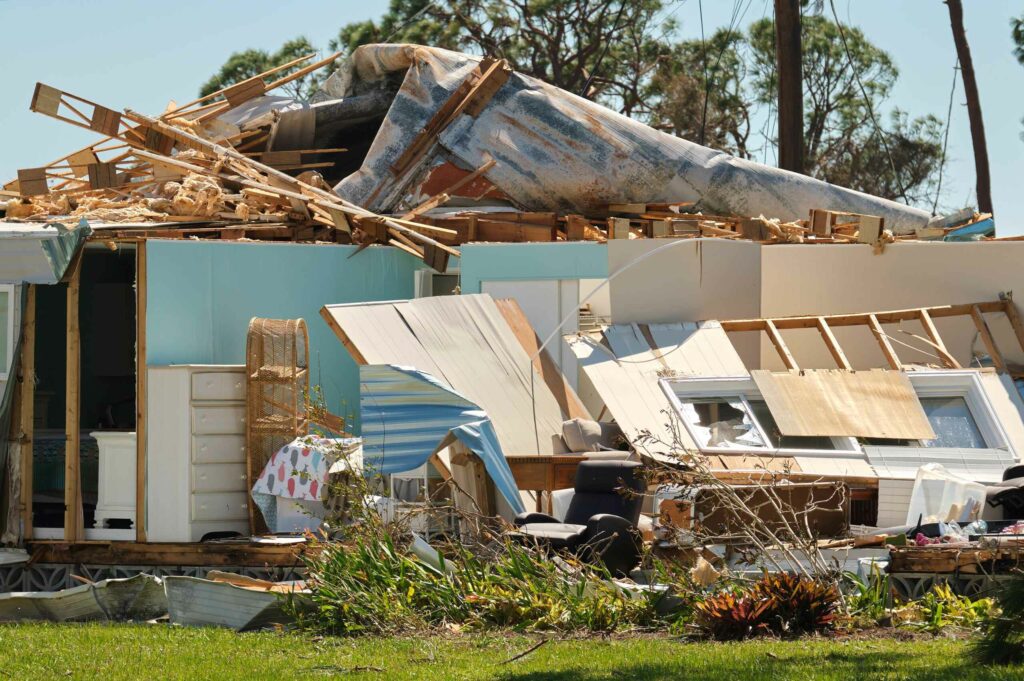The State of Hurricane Ian Insurance Claims
Hurricane Ian brought widespread devastation to Florida, prompting a surge in insurance claims. However, data from the Florida Office of Insurance Regulation (FLOIR) reveals a concerning reality: a significant portion of these claims were denied. Specifically, 28.3% of residential and 30.6% of commercial claims were fully denied, leaving many policyholders without the compensation they needed to recover.
The Scale of Denials and Underpayments
These Hurricane Ian claim denial rates indicate that over one in four policyholders received no payment for their claims, not even partial settlements. This situation highlights critical issues within the insurance claim process, especially in high-impact areas such as Lee and Charlotte counties, where the denial rates were particularly high. The statistics underscore a broader challenge in ensuring that policyholders receive fair and timely settlements.
| Lines of Business | Claims Reported | Open Claims with Payment | Open Claims without Payment | Claims Closed with Payment | Claims Closed without Payment | Percent of Claims Closed |
| Residential Property | 558,299 | 24,180 | 13,369 | 362,626 | 158,124 | 93.3% |
| Homeowners | 454,072 | 20,259 | 11,463 | 286,786 | 135,564 | 93.0% |
| Dwelling | 57,451 | 2,950 | 1,672 | 37,912 | 14,917 | 92.0% |
| Mobile Homeowners | 42,861 | 491 | 87 | 35,839 | 6,444 | 98.7% |
| Commercial Residential | 3,915 | 480 | 147 | 2,089 | 1,199 | 84.0% |
| Commercial Property | 33,010 | 4,508 | 4,383 | 11,363 | 12,756 | 73.1% |
| Private Flood | 5,645 | 378 | 85 | 3,705 | 1,477 | 91.8% |
| Business Interruption | 582 | 25 | 21 | 411 | 125 | 92.1% |
| Other | 179,405 | 1,097 | 998 | 151,764 | 25,546 | 98.8% |
| TOTALS | 776,941 | 30,188 | 18,856 | 529,869 | 198,028 | 93.7% |
Data collected by the Florida Office of Insurance Regulation as of April 22, 2024
Why Are So Many Claims Denied?
Several factors contribute to the high rate of claim denials. According to industry reports and expert analyses, common reasons include:
Insufficient Documentation
Often, claims are denied due to inadequate documentation. Policyholders must provide comprehensive evidence of their losses, including photographs, receipts, and detailed descriptions. Without this, insurers may find grounds to deny a claim.
Policy Exclusions
Many insurance policies contain specific exclusions that are not always clearly understood by policyholders. These exclusions can cover a range of situations, from particular types of damage to specific causes of loss, and can lead to unexpected denials.
Misinterpretation of Policy Terms
Misinterpretation or misunderstandings about policy coverage can also result in claim denials. Both insurers and policyholders may have different interpretations of what the policy covers, which can lead to disputes.
The Importance of Claim Reviews
Given these high denial rates, it is crucial for policyholders to seek a professional claim review. This process can identify potential underpayments or improper denials, allowing policyholders to receive the compensation they’re owed according to their policy. The FLOIR encourages policyholders facing issues with their claims to report them and seek assistance. Professional reviews by trained adjusters, like those at Premier Claims, can help navigate the complexities of insurance policies and advocate for a fair settlement.
Taking Action
The data above clearly shows a significant number of claims from Hurricane Ian were denied or remain unresolved to this day. Affected policyholders need to act proactively. By seeking a professional claim review, you can set yourself up for success to help rectify your losses.
If you experienced a Hurricane Ian claim denial or you suspect it was underpaid, consider getting a thorough claim review. Contact Premier Claims today to learn more.


